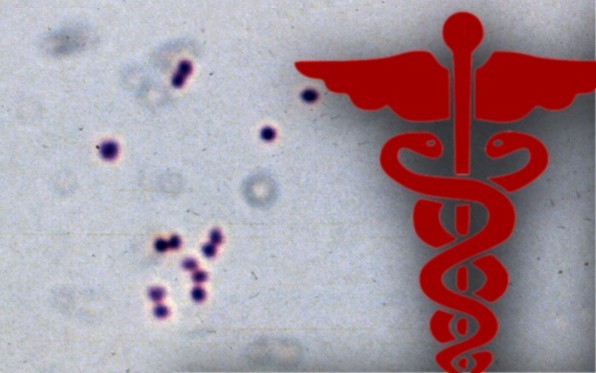SAN DIEGO–An 18-year-old undergraduate student at San Diego State University (SDSU) is gravely ill from probable meningococcal disease, an illness caused by the bacteria Neisseria meningitidis, the County Health and Human Services Agency (HHSA) reported today.
The previously healthy female was admitted to a local hospital Tuesday morning after a flu-like illness. She lived on campus and was not employed.
HHSA is working closely with SDSU officials to identify and notify students and staff who may have been exposed to the bacteria. The woman may have exposed others with close contact any time between Oct. 5 and Oct. 14. Emails have been sent by SDSU to those who may have had contact with the student informing them of what symptoms to look out for and where they can go to be assessed.
“While meningococcal disease can be serious and deadly, it is not spread through casual contact. Therefore, the risk to those who were not in close, direct contact is minimal,” said Wilma Wooten, M.D., M.P.H., county public health officer. “Meningococcal disease is spread through close contact with the infected individual. We are working to notify all who may have been exposed to the disease.”
The bacteria can be spread through close contact, such as sharing drinking glasses, eating utensils, cigarettes or pipes, or water bottles; kissing; and living in close quarters. The time between exposure to the disease and the onset of symptoms can be between two to 10 days. Individuals who have had close contact with the infected person should receive antibiotics to prevent possible infection. Preventive antibiotics are not recommended for individuals who were not in close contact with the infected person and does not have symptoms. They should be aware of possible symptoms and make sure they have received the recommended vaccination against the disease.
Symptoms of meningococcal disease may include fever, intense headache, lethargy, stiff neck and/or a rash that does not blanch under pressure. Anyone with potential exposure who develops any of these symptoms should immediately contact a healthcare provider or emergency room for an evaluation for possible meningococcal disease.
SDSU Student Health Services is extending hours today until 6 p.m. to provide antibiotics to individuals who may have been exposed. Students with questions may contact them at (619) 594-4325 and press 2 between 8:30 a.m. and 4:30 p.m. Monday through Friday, visit shs.sdsu.edu or contact their personal healthcare provider.
“The health and safety of our students is our highest priority and we are working closely with health officials to identify those who may have been exposed,” said Eric Rivera, SDSU vice president student affairs.
There have been 6 cases of meningococcal disease reported in San Diego County this year, including the death of Patrick Henry High School student in February. On average, 10 cases have been reported annually over the past five years in San Diego County.
A vaccine is available to prevent certain strains of meningococcal disease and is routinely recommended for children and adolescents 11 to 18 years of age, including a booster for those entering college if they received their last dose prior to age 15.
Information about meningococcal disease may be found at http://www.cdc.gov/meningococcal/


